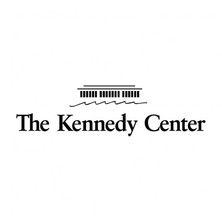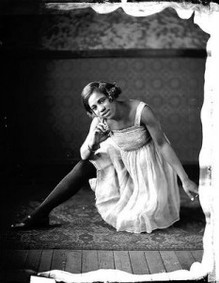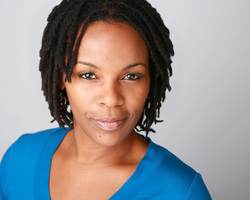 On Monday, September 2, 2013 at 3:00pm, African Continuum Theatre Company opens the 2013/14 Season of the Phoenix with a reading of Producing Artistic Director Thembi Duncan's new play, Mon Chaton as part of the 12th Annual Kennedy Center Page-to-Stage Festival. The reading, which will be directed by Thembi Duncan, features Tricia Homer, Audra Polk, Patricia Dugueye, Carolyn Agan, Kendell Lee, Justin Fair, and Matthew Sparacino. This event is free and open to the public. It will take place at the Family Theater. For more information, visit: http://www.kennedy-center.org/events/?event=XNPTS  About the play Summer, 1926. A country schoolteacher inherits a Harlemboardinghouse from her worldly, sophisticated aunt and finds herself caught in a whirlwind of enthralling characters and events that teach her more about herself than she ever imagined. Mon Chaton is one of the untold stories of lesbians and gays during the period that came to be known as the Harlem Renaissance. I had the opportunity to speak with Thembi about her writing process and the inspiration for her new play.  JACQUELINE LAWTON: Why did you decide to get into theatre? Was there someone or a particular show that inspired you? THEMBI DUNCAN: Back in 1998, I took an acting class at the local recreation center for fun. The culmination of the class was a performance of the children’s play Yours Truly, Jack Frost. I played Evilina Muggleworth, the head of an advertising agency that would do anything to make money. I took such pleasure in playing that deliciously dastardly character that I began to look for more opportunities to embody various personas on stage. Shortly thereafter, I pursued more formal training in acting and movement, and then I and began to audition all over town. I landed a couple of roles, things began to snowball, and I found myself enveloped in the world of theatre. Once I figured out that I could actually get paid to act, that was all she wrote. I was hooked. Poetry was my thing since elementary school, but after acting for a few years, I decided to try my hand at writing plays. I didn’t want to complain that someone else wasn’t writing the stories I wanted to see. I figured, why not write them myself? JL: Next, tell me a little bit about your writing process. Do you have any writing rituals? Do you write in the same place or in different places? TD: I prefer to write at home, where I can hold loud conversations with my characters with minimal outside judgement or intervention. I have a large, rectangular wooden table where my laptop lives. A friend calls it the “Last Supper” table. It’s big enough to spread drafts and notes everywhere, so that I always have my ideas at arm’s length. When it comes to editing drafts and revising, however, I prefer Cosi or Panera Bread. A specific Cosi, and a specific Panera Bread. And I like to sit at the same table. I give people the stink eye if they’re sitting at my table when I come in. JL: Describe for me all the sensations you had the first time you had one of your plays produced and you sat in the audience while it was performed...what was different about the characters you created? How much input did you have in the directing of that work? TD: As a rule, I try to stay out of the director’s hair unless she/he asks me a direct question. I try. I have had several short plays produced, and the first time I sat in the audience and watched one, I was somewhat confused, because a lot of what was going on in my head was not necessarily communicated through the work. Not saying that’s a bad thing, because the piece was still well done, it simply didn’t turn out the way that I’d imagined. The actors imbued the characters with qualities that I hadn’t considered, the director had a vision, and so on. I also learned to think about how effectively I communicate my ideas through the work itself. That’s definitely my biggest challenge. JL: What do you hope to convey in the plays that you create--what are they about? What sorts of people, situation, circumstances, do you like to write about? TD: I like to make opposing ideas crash into each other. I like to educate and create nostalgia. I write about people with quirks, people with weaknesses. People who defy categories and assumptions. I write mainly about women and African-Americans, but several of my characters have no particular race. I write stories that will create images that I want to see on stage. Images that we don’t see often enough – women and people of color as main characters, heroes, complex beings, with agency over their own destinies. I am thinking these days about being more theatrical. Getting away from writing that stages like TV or film, which is hard. I want to give people a compelling reason to get off their couches and go sit in a dark building with no windows. JL: What inspired you to write Mon Chaton? TD: In 2009, I was at the University of Maryland in my last semester of finishing my undergraduate degree in Theatre (it’s never too late, kids!). I decided to write a play as an Independent Study, so I worked with Dr. Walter Dallas on The New Negro, which was the original title of the play, based on the 1925 anthology of the same name by Alain Locke. My fascination with the Harlem Renaissance led me to the subject matter – but I was interested in the average, everyday people who lived amongst the renowned artists that we often associate with that era. JL: Why is this story relevant for today’s audience? TD: Anyone engaged in the current public discourse on LGBT equality will be interested in this piece. Everyone else will (hopefully) appreciate it for its exploration of the complexities of love and identity in that particular space and time. Some people consider LGBT issues a modern phenomenon, as if gays and lesbians were invented in the 80’s. The fact that there was a thriving LGBT scene in Harlem in the 1920’s was interesting to me, and I wanted to share some of those stories, based on my exhaustive research of the period. Audience members have cornered me, asking how much of the play I “made up,” and the answer is very little. Nothing is new under the sun. About the Playwright A native of the Washington D.C. area, Thembi Duncan has performed as an actor in the region for almost fifteen years. As an emerging playwright, she penned Gridiron: Adventures from the Sidelines,for the Active Cultures 2011 Sportaculture Play Festival, which was re-produced in the Best of Sportaculture Festival later that year. Champagne, her 15-minute play commissioned by The Brave Soul Collective, was performed for National Black AIDS Day 2012, the 2012 National Black Theatre Festival, and the 2012 International AIDS Conference. She wrote Coop in the Yard for Active Culture's Govaculture offering in the Atlas Intersections Festival, and BLUEP for Rorschach Theatre's Klexography Festival. Mon Chaton is her first full-length play, which was first developed in 2009 under the tutelage of Dr. Walter Dallas at the University of Maryland, and has had successful staged readings in D.C. and Virginia. Her cross-gendered adaptation of the cult classic film Whatever Happened To Baby Jane?, called WTF Happened To Baby Sister?, will receive a workshop performance in February 2014 as part of the Mead Theatre Lab Program. Thembi serves as Lead Teaching Artist at historic Ford’s Theatre, and also serves as Producing Artistic Director of African Continuum Theatre Company.  About African Continuum Theatre Company The African Continuum Theatre Coalition was created in 1989 as a service organization to assist the dozen or more small black community theatres in the improvement of the quality and visibility of their work. In 1995, the Coalition transitioned into a theatre company, with a primary mission to produce professional, high-quality programming for the general public that preserves and highlights African-American history and culture. African Continuum Theatre Company has presented over 35 fully-produced, main-stage plays, seven of which were world premieres, along with numerous public readings of new works by playwrights of color. African Continuum Theatre Company is committed to providing new and traditional performing art forms from main-stage productions to community engagement programs. Its focus and strength is engaging the community with exciting and meaningful theatrical productions, educational programs, partnerships, and volunteer opportunities that bring us to the larger community. African Continuum has garnered recognition for its artistic endeavors and leadership from the Cultural Alliance of Greater Washington and other agencies, including 16 Helen Hayes Awards nominations, 3 Helen Hayes Awards, the Washington Post Award for Distinguished Service to the Community, and the Mayor’s Arts Award.
0 Comments
Your comment will be posted after it is approved.
Leave a Reply. |
My BlogI'm a playwright, dramaturg, and teaching artist. It is here where you'll find my queries and musings on life, theater and the world. My posts advocate for diversity, inclusion, and equity in the American Theatre and updates on my own work. Please enjoy!
Categories
All
Archives
June 2020
Reading List
|
